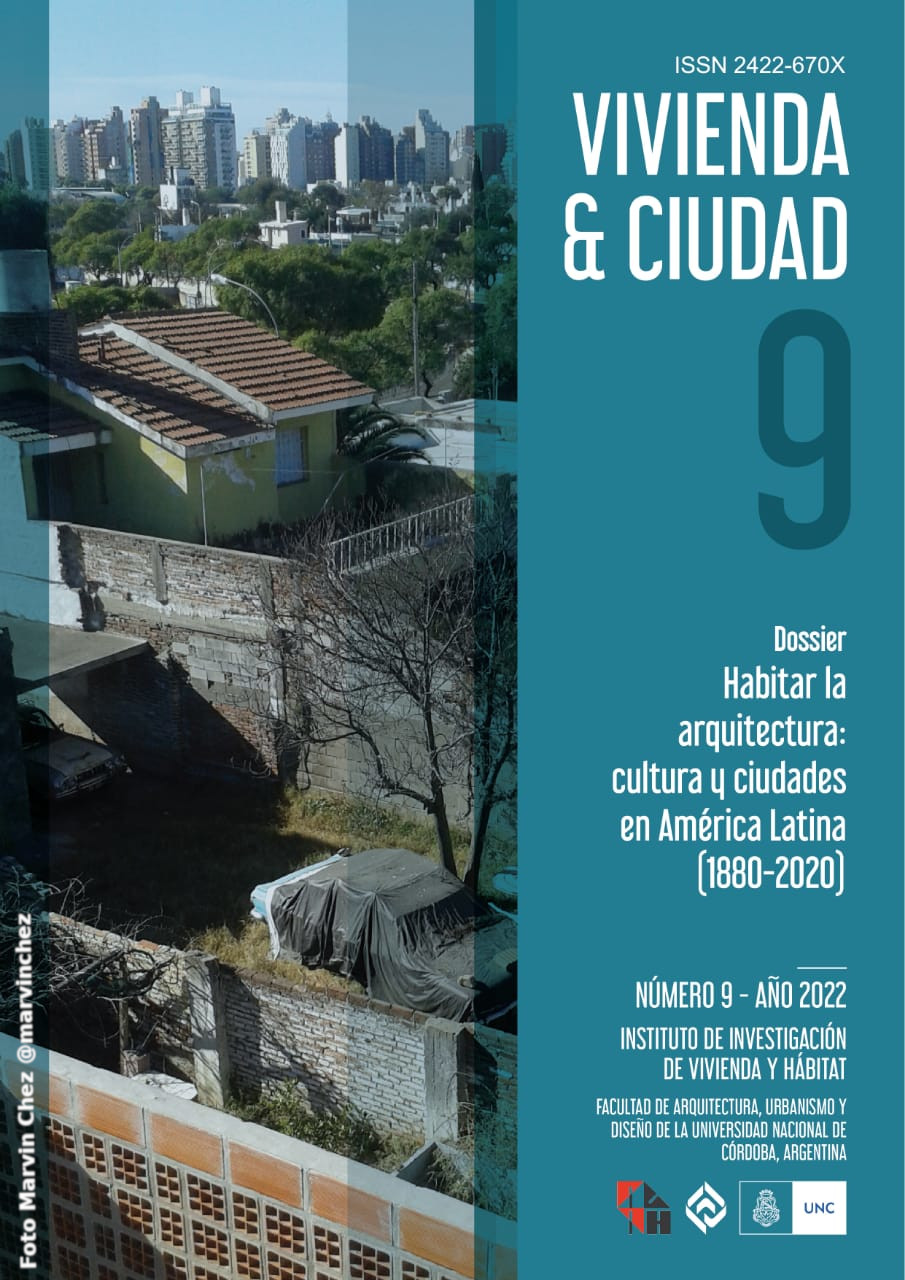Transforming the hillside into a home
networks of juntanza between women in the Comuna Popular in Medellin
Keywords:
popular inhabitation, gender, Comuna Popular, popular urbanization, networks of juntanzaAbstract
In the Comuna Popular, the first settlement recognized as informal in Medellín, two logics under dispute configure the habitable space: an institutional one that —from the outside— observes, analyzes, and determines the representations of space; and another one in which its inhabitants —from the inside— resist, transgress and build representational spaces. Its importance lies in that, by categorizing it as informal or irregular, institutions have justified multiple spatial interventions imposed from above that do not consider the needs, interests, and capacities of its inhabitants. Over the years, however, the Comuna Popular has consolidated over the years as a resistance space in which inhabitants challenge the hegemonic narratives about living the city. Women have played a fundamental role in this process since, from the very first settlements and in the State’s absence, they had to assume the principal role as producers of habitable space. Thus, this article seeks to document, through a bottom-up approach, the process of production of space led by the women in the Comuna Popular. For this end, this article recovers the testimonies of female social leaders who transformed the hillside into a home through networks of solidarity and juntanza.
Downloads
References
CNMH. (2017). Medellín: memorias de una guerra urbana. Bogotá: CNMH.
Federici, S. (2020). Reencantar el mundo. El feminismo y la política de los comunes. Madrid: Traficantes de sueños.
Giglia, A. (2012) El habitar y la cultura. Barcelona: Anthropos.
Gómez, H. (2010). Resistir y persistir: estrategias organizativas de mujeres de la zona nororiental de Medellín. Observatorio K, 2010: 113-212. Recuperado en 29 de junio de 2022, de https://dialnet.unirioja.es/descarga/articulo/3860762.pdf
Hardt, M., & Negri, A. (2011). Commonwealth. El proyecto de una revolución del común. Madrid: Akal.
López Lara, J. (2009). Las casas vecinales: una historia para contar, desde la mirada de las madres comunitarias. Bogotá: Universidad del Rosario. Recuperado en 29 de junio de 2022, de http://repository.urosario.edu.co/handle/10336/1615
López Lara, J. (2014). Madres comunitarias: relatos de vida y configuración de identidades en el marco del programa de hogares comunitarios de bienestar. Estudio de caso, Ciudad Bolívar. Bogotá: Universidad Javeriana. Recuperado en 29 de junio de 2022, de https://repository.javeriana.edu.co/bitstream/handle/10554/13435/LopezLaraJohannaAlexandra2014.pdf;sequence=1
Navarro Trujillo , L; Uribe Lineros, J. (2020). Juntanza y digna rabia: sistematización de experiencias de las colectivas feministas en la PUJ (Tesis). Bogotá: Pontificia Universidad Javeriana. . Recuperado en 29 de junio de 2022, de https://repository.javeriana.edu.co/bitstream/handle/10554/52726/Tesis%20para%20enviar%20definitivaaa.pdf
Niño, E. (2020). Corporación Con-Vivamos: prácticas comunitarias documentales y reconstrucción de memorias populares a finales del siglo XX en la Zona Nororiental de Medellín. Medellín: Universidad de Antioquia. Recuperado en 29 de junio de 2022, de https://bibliotecadigital.udea.edu.co/bitstream/10495/16840/2/NinoEdward_2020_ConvivamosArchivosMemorias.pdf
Ochoa, D., & Orjuela, M. (2013). El desplazamiento forzado y la pobreza de la mujer colombiana. Entramado, 66-83. Recuperado en 29 de junio de 2022, de http://www.scielo.org.co/scielo.php?script=sci_arttext&pid=S1900-38032013000100005&lng=es&tlng=es.
Stavrides, S. (2016). Common Space: The City as Commons. Londres: Zed Books.
Published
How to Cite
Issue
Section
License
Copyright (c) 2022 Daniela Núñez Ruiz

This work is licensed under a Creative Commons Attribution-ShareAlike 4.0 International License.
Authors who publish in this journal agree to the following terms:
a. Authors retain copyright and guarantee to the journal the right to be the first publication of the work as well as licensed under a Creative Commons Attribution-ShareAlike 4 license.
b. Authors may separately establish additional agreements for non-exclusive distribution of the version of the work published in the journal (e.g., placing it in an institutional repository or publishing it in a book), with an acknowledgement of its initial publication in this journal.
c. Authors are permitted and encouraged to disseminate their work electronically (e.g., in institutional repositories or on their own website) before and during the submission process, as this may result in productive exchanges, as well as earlier and greater citation of published work (See The Effect of Open Access).
d. 4.0 International Creative Commons Attribution-ShareAlike 4.0 License.










